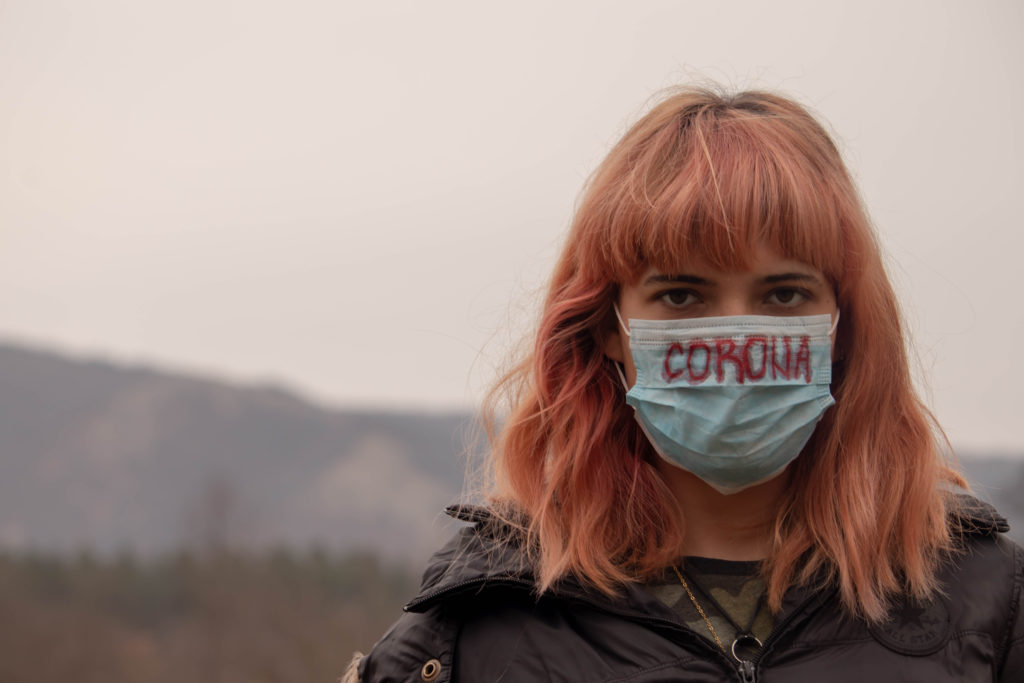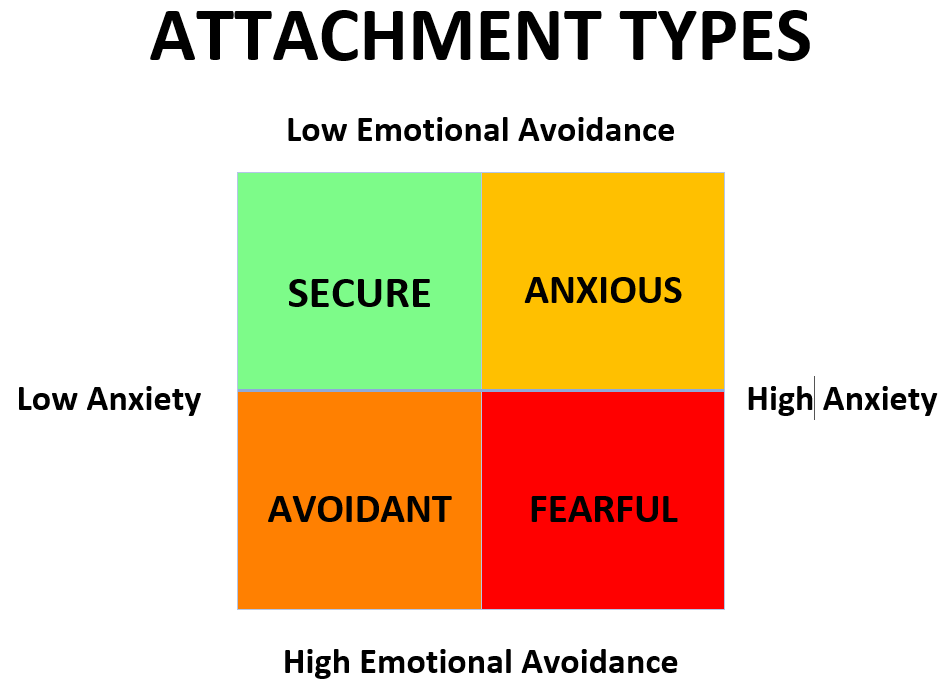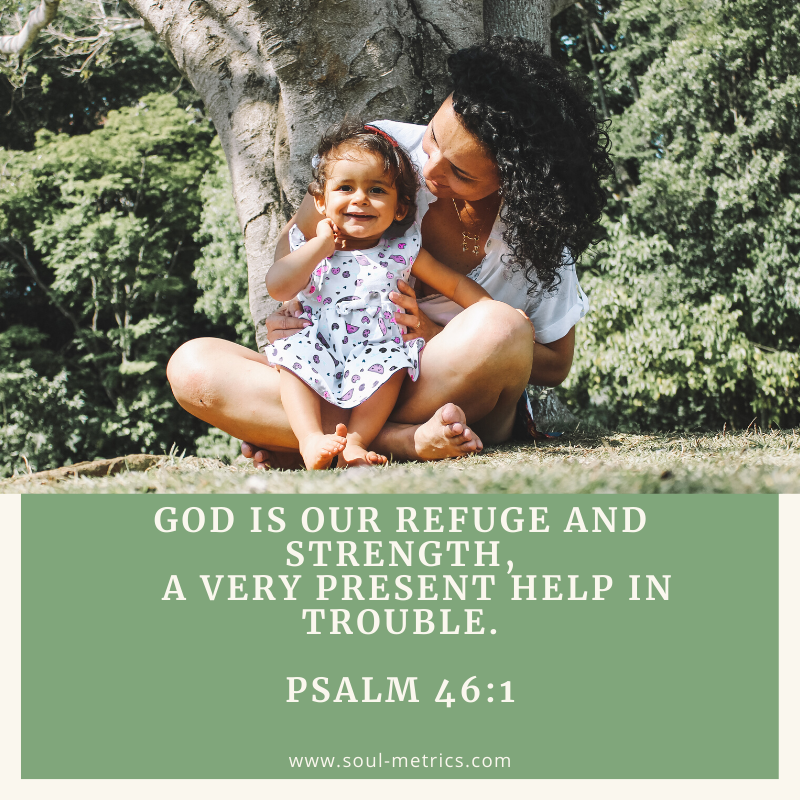
There is nothing like a worldwide crisis for observing human nature. I will bet you have all observed these three categories of responses to the Coronavirus: 1) panic, 2) denial, and 3) courage. And this is nothing new. You will see these three responses in any life-threatening crisis, and it can be explained by an area of psychology called attachment theory.
Attachment theory is a way of explaining how people of any age respond in crisis based on how their primary attachment figures (primarily mothers but also fathers and other early caregivers) responded to them when their babies. These initial interactions shape how a person behaves throughout their lifetimes in their relationships and particularly when times get tough.
1. A parent attuned and responsive to the child’s emotions= secure,
2. a parent who responds inconsistently= anxious,
3. a parent who ignores= dismissive-avoidant, and
4. one who responds abusively= fearful-avoidant.

First, let me say that the most vulnerable people in times of crisis are probably the fear-avoidant. While they are probably the most likely to shut themselves up in their residences and be safe from the virus, they are paralyzed by fear and too distrustful of others to ask for help. If you know people like this, send an encouraging email or text reminding them that you care about them, and you are available to help. They aren’t going to reach out to you, but you can reach out to them, but do so unobtrusively.
So who are the panickers, the deniers, and the courageous and how should we respond to them?
The Panickers. Anxious style folks were the first to hit Wal-Mart and clean out the toilet paper shelf. They are panicking. As a person who suffers from anxiety and panic in times of crisis, I get this. They have been non-stop on social media warning us all of the dangers of this virus from day one. Right now, they are probably feeling validated by all the actions that governments and corporations have taken this week. But they are also suffering from the social distancing that is necessary. They need to connect with people and are seeking affirmation and security. Take their calls and respond to their messages. Listen to them and maintain a non-anxious presence if possible.
The Deniers. Those who are dismissive-avoidant are not likely to be overconcerned about anything and resist and even despise panic. They are the most likely to deny the reports coming from the media or authority sources. They are rigidly self-reliant and defend themselves from new information as if it is an attack. They are in danger, and there may be nothing you can do about it. They are most likely to go about their business and catch the virus stubbornly and spread it to others. But remember how this attachment style came about: they were neglected or rejected by someone when they were most vulnerable. They had to become self-reliant, and as a result, they struggle to trust the very people and things that could help them in crisis. Rather than reacting with anger when they mock the world for overreacting, understand that down deep, they also desperately need love and compassion. Rather than confirming their narrative about people (no one cares), show them a different version of humanity: show that you care. That’s what a secure attachment person does.
The Courageous Helpers. People who operate under the secure attachment style have two amazing things going for them: their ability to cope with stress and their ability to act courageously in times of crisis. It may be only because a parental figure was available and responsive to them when they were babies. But that’s not the only reason. It’s because, as adults, they continue to trust people. And so, it isn’t just that they have the inner resources to deal with a crisis, but because they are comfortable with asking for help when they need it.
As you grow up, you might still call mom when you need help, but what if mom is not available or what if she has never been available? In recent years, some psychologists have been studying the concept of God as a primary attachment figure. Primary factors in determining an attachment relationship are if you turn to that person in times of crisis, if contact with that person gives you a sense of security, and if that person’s presence makes you more courageous. Imagine if you attached your life to an all-powerful, ever-present, loving being who hears and responds to your cry for help.
I recently asked Dr. Pehr Granqvist of Stockholm University, who has done extensive work on attachment theory within religion, how he thought attachment style was affecting people’s responses to the pandemic. He said:
“Secure folks tend to share their vulnerability with others when mortality salience [threat of death] and other sources of worry and fear are pronounced. This is very helpful for themselves and their surrounding – it creates a cooperative stance where mutual support and care may result in a group, even spread to a larger circle of people.”
You may not associate vulnerability with courage, but that is precisely what it is. Invulnerability requires no courage because there is no real risk. A person capable of feeling the pain of rejection and who still chooses to reach out to others in their anxiety, dismissiveness, and fear exercises the greatest of courage. This is the kind of courage that the world needs.
Today we are much more aware of our shared vulnerability because of the Coronavirus. We are in this together and God is with us, too. It could be just the thing our world needs right now to turn to God and one another with love and trust. We can bridge the gap of social distancing that the world has been suffering from for years and spread healing.

We are all capable of secure attachment if we will seek help in facing our fears, our anxieties, and our hurts. It will take courage to be so vulnerable, but it will open you up to the most infectious thing of all: love.

Recent Comments